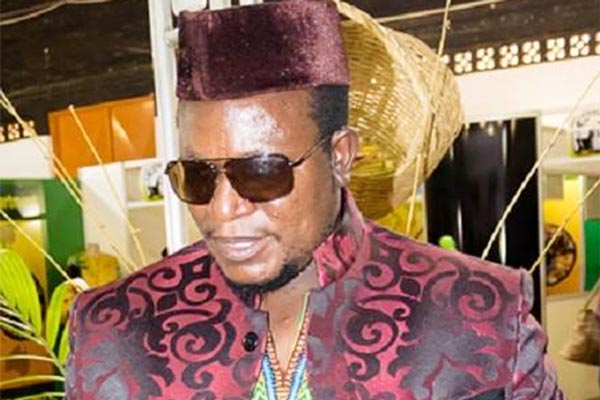

Social Commentary with Moses Mugugunyeki
Zimbabwe has written a successful HIV story, thanks to the robust HIV response programme the country undertook over the years.
The fairytale HIV success story is hinged on a comprehensive combination of high-impact HIV prevention interventions. That include, among others, HIV testing services, prevention of mother-to-child infection, condom promotion and distribution, treatment as prevention, behaviour change and voluntary medical male circumcision.
According to the Zimbabwe Population-based HIV Impact Assessment (Zimphia), Aids-related deaths have declined by 77% in the country in the last 13 years.
At least five per 1 000 Aids-related deaths were recorded in 2016 against 50 per 1 000 recorded at the height of the epidemic in 1994.
The country has also witnessed a significant drop in HIV prevalence and incidence rates over the years.
However, popular traditional healer and herbalist, Sekuru Kamwelo Banda, while acknowledging that the goal of ending the Aids epidemic in the country by 2030 is within reach, believes Zimbabwe could face a mammoth task in meeting the United Nations’ 90-90-90 targets by 2020.
The 90-90-90 targets call on countries to ensure that by 2020, at least 90% of all people living with HIV know their HIV status, 90% of all people who are living with HIV and know their status are put on treatment, and 90% of people on treatment are virally suppressed.
- Chamisa under fire over US$120K donation
- Mavhunga puts DeMbare into Chibuku quarterfinals
- Pension funds bet on Cabora Bassa oilfields
- Councils defy govt fire tender directive
Keep Reading
“The country is doing well on managing HIV and on the right track regarding meeting the 90-90-90 targets by 2020, but I feel it’s insurmountable because of a number of issues, chief being deliberate omission of traditional healers in HIV programming,” Sekuru Banda told Standard Style on Thursday.
“For 2020 it could be unattainable because we are just a year away, but we could be on course to end Aids by 2030 if we embrace indigenous knowledge systems in our primary health care, particularly on HIV and Aids.”
According to the Zimphia Report of 2016, the goal of ending the Aids epidemic in Zimbabwe by 2030 is within reach, provided there is continued expansion of HIV treatment programmes and targeted HIV-testing, especially for men and young women.
However, Sekuru Banda, said organisations like the National Aids Council should actively engage traditional leaders in research for improved treatments for HIV and Aids as well as opportunistic infections.
“We are not at war with Aids service groups, but we want recognition because we believe we can win this battle together,” he said.
“It’s a fact that there is no cure for Aids and people should not be misled by reports coming from some faith and traditional healers who claim to cure Aids.
“When a patient comes to me, I encourage them to get tested for HIV, accept their status if they are found to be positive, and take treatment consistently as prescribed.
“I will then advise them on what kind of foods to take and, above all, I encourage them not to default on treatment.”
Sekuru Banda said he was saddened by the increase in substance use by youths, pointing out that it was putting them at HIV risk.
“If you are high, you may be more likely to make poor decisions that put you at the risk of getting or transmitting HIV, such as having sex without a condom. You might also default on taking ART (antiretroviral therapy) if you are high, which again puts you at risk,” he said.
Despite the HIV prevalence rate in 15-49-year-olds having taken a dip in the past decade from 14,8% to 14%, Sekuru Banda believes there is need for collective efforts in addressing issues that put young people at risk of getting or transmitting HIV.
“The future of this country is in the hands of young people and it is our duty to help shape their future. I am in the process of establishing a drug rehabilitation centre here in Harare, but in the meantime, we have set up projects where we are identifying youths involved in drugs,” he said.
The traditional healer, who last year was voted as the Achievers Forum Zimbabwe’s most influential healer, is working with some corporates and psychosocial support groups in fighting drug abuse.
“We are involved in this fight to create a drug-free society. As a traditional leader, I make sure I free one from addiction and we have people around who would take you through rehabilitation before we engage companies for a possible job enlistment,” he said.
The Malawi-born traditional healer says he will not stop researching on HIV and Aids as he believes that the panacea to the scourge is in the hands of African research.
“We are doing research and we will not stop finding a solution to the Aids scourge. We are researching on medicines that can help people with HIV and Aids live healthier, longer lives and can help prevent transmission of HIV from mothers to their infants to augment modern health care systems,” he said.
Sekuru Banda has turned out to be a hit in Harare, drawing hundreds of people — locals and foreigners — at his shrine in Cranborne.
Hailing from Mangochi in Malawi, Sekuru Banda says he is willing to work hand in glove with Aids supporting groups as the country intensifies and fast-tracks actions towards ending Aids by 2030.











